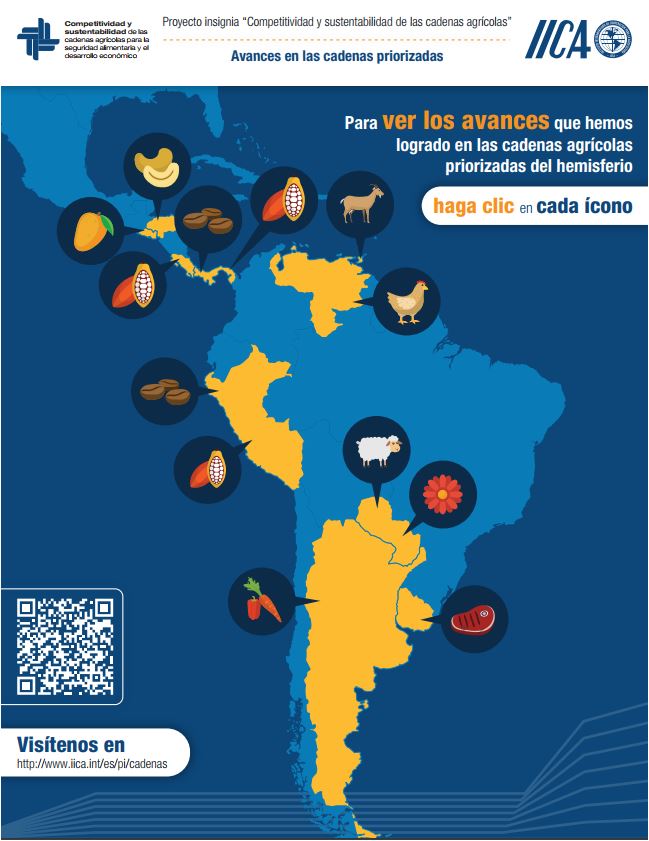IICA’s Agricultural Chains Flagship Project presents a summary of results achieved in agricultural chains across Latin America and the Caribbean.

San José, 10 January 2018 (IICA). Through a series of digital data sheets, the Inter-American Institute for Cooperation on Agriculture (IICA) details the concrete actions it has implemented in nine Latin American countries and one country in the Caribbean, with the aim of improving the competitiveness and sustainability of agricultural chains prioritized by the Institute.
The data sheets describe actions developed in several agricultural chains, namely: horticulture in the Corrientes Green Belt in Argentina; sheep and floriculture in Paraguay; dairy goat in Trinidad and Tobago; coffee and cocoa in Panama and Peru; poultry in Venezuela; meat in Uruguay; fruit in El Salvador; cocoa in Costa Rica; and cashew in Honduras.
The actions were carried out by the “Competitiveness and Sustainability of Agricultural Chains” Flagship Project (Chains FP).
“By engaging in joint work with our counterparts, partners and key chain stakeholders, we have made comprehensive progress toward achieving the project’s expected results in each of the priority chains,” stated Daniel Rodríguez, Flagship Project leader.
The FP began by identifying the needs of each chain and establishing priorities, in order to ensure that results would be achieved. Actions were subsequently implemented in the chains with the aim of improving their productivity, competitiveness, sustainability and equity.
The Chains FP is one of the mechanisms through which IICA provides technical cooperation in the hemisphere. This project seeks to improve the competitive and sustainable performance of agricultural chains as a whole, and of all of its links, through policy management, the strengthening of institutions and capabilities, and support for technological, business, institutional and commercial innovation processes.
These are the results by country:
- The horticulture chain in the Corrientes Green Belt, Argentina
- The dairy goat chain in Trinidad and Tobago
- The sheep chain in Paraguay
- The cocoa chain in Costa Rica
- The flower chain in Paraguay
- The coffee and cocoa chains in Peru
- The poultry chain in Venezuela
- The meat chain in Uruguay
- The coffee and cocoa chains in Panama
- The fruit chain in El Salvador
- The cashew chain in Honduras
More information:
Daniel Rodríguez, Leader of the Agricultural Chains Flagship Project at IICA.
Web page: www.iica.int/en/pi/chains











